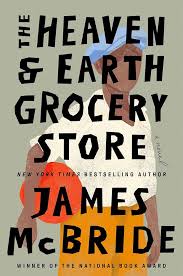Chapter 26: The Job
byChapter 26: The Job begins with a simple mechanic moment but quickly unfolds into something deeper—an under-the-table task that blurs the line between necessity and legality. Fatty, noticing the mismatch of Ford parts in what should’ve been a Chadwick engine, proposes a new opportunity to Big Soap. The offer sounds tempting: $35 for a few hours of clandestine plumbing work—an alluring proposition compared to Big Soap’s modest factory wage. Fatty’s plan involves digging under the cover of night, tapping into a city water line, and reconnecting an old pipe near Clover Dairy. Though technically not illegal, the job must remain hidden, raising suspicions. Big Soap is skeptical, especially with Rusty involved, which usually signals complexity. Still, the lure of fast money overshadows doubt. For working-class men limited by systemic inequality, such jobs, though risky, offer an escape from economic struggle—an unfortunate truth that still echoes in underprivileged communities today.
Their exchange, laced with humour and cynicism, also reflects the calculated desperation that drives men to accept shadowy work. Fatty downplays the potential consequences, emphasizing Rusty’s skills with cement to smooth over possible mistakes. Though the job appears to require little more than elbow grease and timing, it’s clear there are larger, hidden motivations—especially when Fatty can’t say who is paying. When Paper arrives, glowing with authority in a yellow dress, she calls Fatty out on a missed commitment to Nate. Her reminder—Nate’s planned relocation to Hemlock Row that night—puts Fatty in a bind. He wants to help Nate, but the lucrative water job pulls him in another direction. Paper’s subtle emotional appeal is powerful. It’s a reminder that loyalty and love aren’t always compatible with personal ambition. This kind of moral tension—between duty to community and survival—runs through the lives of many who live with fewer choices and more risk.
Meanwhile, preparations for the Memorial Day parade continue. Nate, balancing loyalty to both community and his secret plan involving the Egg Man, prepares to transport parade equipment stored at Moshe’s theater. The city had failed to provide transportation this year, so Nate, with Fatty and Big Soap’s help, hauls it all manually. Addie’s concern deepens—she’s aware that something larger is brewing beneath this errand. She knows the Egg Man meeting is connected to Dodo, though the full plan remains obscure. Nate, trying to reassure her, insists he won’t be directly involved and that he’ll return by midnight. Addie’s doubts are justified; the vague details and cryptic references speak to a fragile, improvised plan. Her unease mirrors the fear of many families touched by injustice—where salvation often involves navigating systems built to exclude them. While she loves Nate deeply, she worries his good intentions might carry unintended consequences. Her instincts, rooted in experience, are not wrong.
The tension peaks when Fatty, conflicted about his dual obligations, tries to find a workaround: dropping Nate off at Hemlock Row earlier in the evening so he can still complete his own assignment. On their way, Fatty finally opens up about a letter he received through his sister—an anonymous request, accompanied by cash, to redirect a water line near the Clover Dairy. He admits to Nate that part of the note was lost, but what he remembers involves Jews, union workers, and the Pennhurst train—a cryptic combination of themes hinting at a larger political or social agenda. Nate quickly connects the dots. He suspects the request came from Mr. Isaac, a powerful cousin of Moshe with influence beyond the Hill. His involvement suggests that the water job isn’t just about plumbing—it’s part of a quiet but strategic reshaping of the community’s infrastructure, possibly in defiance of discriminatory policies or to support marginalized residents.
In marginalized communities during the mid-20th century, infrastructure like water access was often denied or neglected by city authorities—especially for predominantly Black or immigrant neighborhoods. It was not uncommon for residents to take matters into their own hands to ensure access to basic services. Fatty’s job, while technically outside the law, speaks to this larger historical pattern of resistance and survival. The fact that the job connects to both religious institutions and working-class immigrants reflects the overlapping struggles within the community. It’s not just about water—it’s about dignity, autonomy, and the right to thrive. Nate’s sharp intuition, recognizing Mr. Isaac’s hidden hand, suggests there’s a collective effort underway, masked as a simple job. Meanwhile, Fatty’s internal conflict—balancing loyalty to his friend, desire for economic security, and moral ambiguity—underscores how survival sometimes requires compromise. These choices are never easy, but they are painfully real for those operating in the margins of society.


